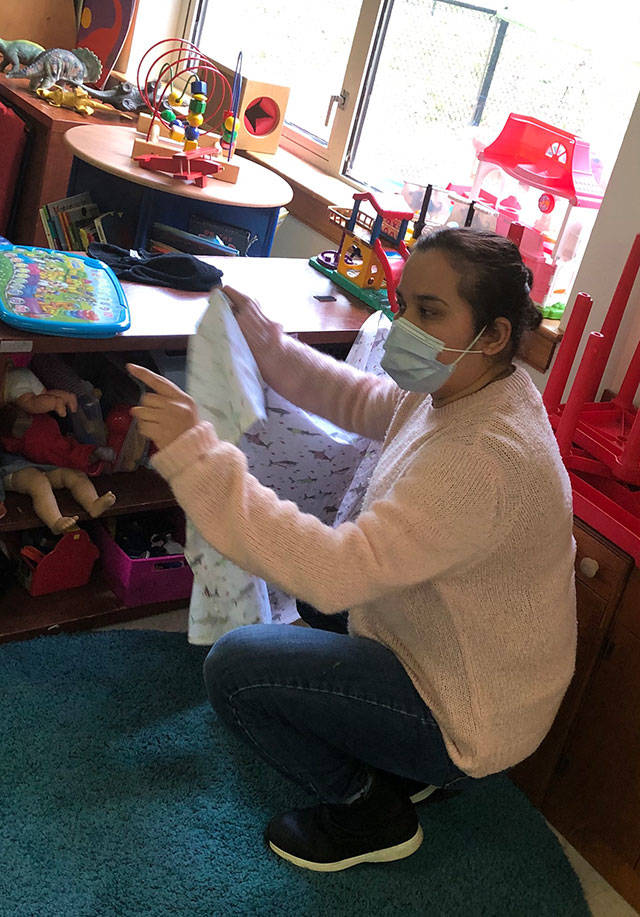By Susan McCabe
For Vashon Island School District
When it comes to education, it’s vitally important that children start on a level playing field as much as possible.
Not every child on Vashon starts life with the same resources, so the Vashon Island School District (VISD) offers the Early Childhood Education and Assistance Program (ECEAP) free to children aged three to five years old, from qualifying families.
ECEAP, a State-funded program, shares some similarities with Head Start, the better known federally funded early childhood education program.
The long-term data has shown vast advantages for children, school districts and communities that have these types of programs: Children are healthier when they start kindergarten; less likely to be in special education or repeat a grade in school; more likely to graduate from high school and go on to college; less likely to become pregnant or involved in a crime as a teen, and more likely to be employed and earn more as an adult.
For the four people most involved in running Vashon’s programs, these outcomes are deeply localized and are launched on a daily basis at the preschool.
ECEAP Center Director, Kathryn Coleman, called her team “…a well-oiled machine. I work really hard to assure they have all the tools they need. Then I step back and get out of their way.”
The program has operated safely on-site as a hybrid at Chautauqua Elementary School throughout the pandemic, and in full force for six years before COVID. Coleman’s team includes headteacher Lilia Longworth, para-educator Laura Favela and family support specialist Sally Adam.
A noteworthy aspect of the program is that it exists in large part because of the will, vision, fundraising efforts and concern of many Vashon Latino families who saw early on that Vashon needed a high-quality preschool accessible to all.
Adam, over the years and currently, works with parents in the ECEAP community. She’s started a parent group online where mothers share stories about their lives, make friends and share resources.
“The benefits to the school district from ECEAP are gigantic,” Adam said. “These parents and children are dynamic, strong, resilient and creative contributors to our school community. Our ECEAP group is the most ethnically and racially diverse of any classroom at VISD. We celebrate and honor that.”
Family support is a cornerstone of the ECAEP program — and explains why ECEAP works so well in preparing to thrive in school and in life. In the course of a day, Adam may work with families to secure different types of resources or make referrals.
Currently, the biggest challenge to family security is finding and keeping affordable housing and a living wage on Vashon. There’s also an ECEAP component that addresses health and nutrition needs, including dental care.
Seven years ago, when the program began, state administrators who looked at Vashon’s median high incomes were skeptical that VISD could fill 20 student slots from low-income families. However, Vashon’s ECEAP has filled 20 student slots every year since its inception with an occasional short waiting list.
In order to qualify for ECEAP, families need to demonstrate that they have faced circumstances such as poverty, housing insecurity, certain environmental risks or children’s developmental needs. In addition, their children must be three three-years-old by the end of August before school starts. For all these children and their families, ECEAP provides its programs free of charge.
Longworth, who’s been with the program since it began, explained that Vashon’s ECEAP focuses on socio-emotional skills for kids so they can be ready for school for the rest of their childhoods.
“We want them to know school is safe and fun; that they can regulate their emotions and enter groups easily, share with others, feel comfort in routines, and handle transitions,” she said.
And while students are monitored to assess their progress in such areas as math, literacy and science, it’s the socio-emotional skills they acquire in ECEAP that support their future success in school and in life. The ECEAP team carefully measures progress with each child using quarterly checkpoints, recording their observations, customizing programs for each child and sharing those observations with parents.
Both ECEAP teachers and Adam are bi-lingual.
“We are here to help and support the kids; they’re safe with us and we treat them with respect,” Favela said.
In fact, Favela’s favorite part of her day with the students is when they all dance together — with the kids choosing the music. The teachers join in as they jump up and start moving.
Dancing is just one part of a six-hour ECEAP day from 9 a.m. to 3:40 p.m. most days. In the program’s current COVID hybrid program, two different groups of ten students come into the school on alternating days, making the student-teacher ratio one to five.
Longworth said her favorite part of the day is when the kids first arrive and wave goodbye to their parents because they’re happy to be at school.
Other than that, she says, “Every day is different. When it’s nice, they want to play outside. We play with them. Inside we dance, we read books, they nap, eat, dance and go home.”
Because the program takes place at Chautauqua, ECEAP students know that they belong in the Vashon School District before starting kindergarten.
Adam, in the meantime, is recruiting new families for the program. The application process starts with a note to Adam at sadam@vashonsd.org.


